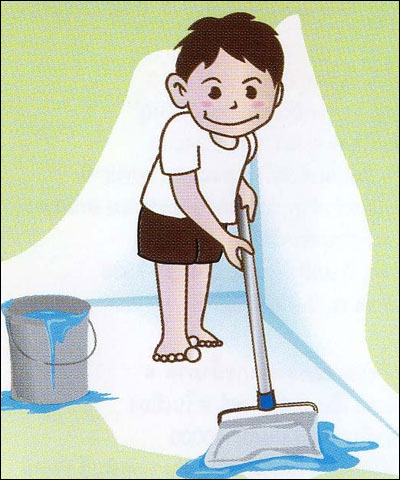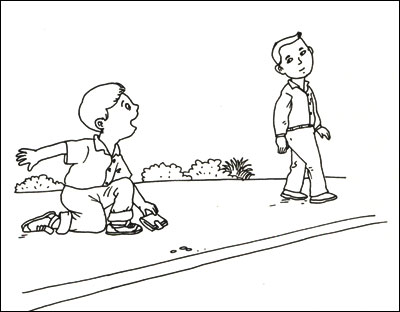Meditation" /> " /> " /> " /> " /> " />Meditation for BeginnersHow To Plant Habits into ChildrenTo Be Kind And Generous (Mai Lang Num Jai)#1Parents teach children not to be harmful by using behavior rules.Parents teach children not to be harmful by using behavior rules. They teach them to be intelligent by using respecting rules. The way to teach children to be generous in by planting patience into them.What is patience? (Od-Ton)Od means to want to have but doesn’t have.Ton means to not want to have but does have.Patience means knowing to maintain our normal circumstance when it is affected by anything that we want to have or not.How does patience cause generosity?If someone can’t be patient, s/he will not be able to help him/herself. And then s/he will not be able to help others as well so s/he won’t be generous to others.How do you teach children to be patient?To begin with they should be trained to be patient regarding these 4 factors:1) Being patient towards difficulty.2) Being patient towards suffering.3) Being patient towards conflict.4) Being patient towards stimulation of kilesa.1) Being patient towards difficulty is patience to climate condition. No mater whether it’s too or too cold, to watery, too dry, too hard or too soft, we should be able to be patient without pretending to give up.People who lack patience towards difficulty always use the weather to be the excuse to ask for a day off. Actually, it is the excuse of lazy people. Whether it’s hot/cold, morning/evening, they will use the excuse not to go to work.If parents always baby children when they have a little obstacle, children will have no patience. When they grow up, they will be lazy and take advantage of others.Therefore, parents have to train them to be patient towards difficulty. When they fall, they have to learn to stand up by themselves. If they cry, they’ll stop when no one pays attention to them. This can help them to be patient.Besides that, parents should support them to play sports (football, basketball, volleyball, swimming etc.).Sports will help to strengthen their muscles and to be healthy. Children will not be afraid to be tired. When they grow up, they will be ready to fight any troubles without any fear.2) Being patient towards suffering is patience towards illness. Parents should teach children to take care of themselves well.For example, when children get cut or fall down, they should be taught to take care of their wounds by themselves, so they’ll learn to be patient and avoid letting it happen again.If parents don’t teach them to be patient, children will pretend to be worse. For example, if children just cough without any fever, parents baby them by allowing them not to go to school. Next time, the children will do the same thing when they are lazy.There is a story of an Australian teacher. She knows how to teach her children to take care of themselves.One day she was staying at another teacher’s house, and her 3 year old son asked t hold a knife. The mother refused to give it to him and explains to him that he might get cut. But the boy still asks to play with the knife. Finally, the mother agrees under the condition that the boy can’t cry if he gets cut and he has to take care of the wound by himself. The boy agrees.Five minutes later, the boy got cut and he cried. The wound is just a minor cut so it’s fine. The mother stated the claim based on the agreement. Then the boy stopped crying. The mother gave the child iodine. The mother said, “If you don’t take care of your wound I will dip the finger right into the iodine. Here is the cotton so you must wet the cotton with the tincture and you must apply it to the wound. If you do not do this well the wound will become infected. If it becomes infected then you have to cut the finger.”The boy had to put the dressing on and wrap it around the wound. The mother told the boy that if he gets dust in the wound, you still have to cut the finger.Then he asked his mom to take care of the wound. The mother refused to because he already promised that he would do it by himself. Then the boy has to do so by himself.The mother said that the wound might be worse if it gets wet. So the boy has to beware of water when he’s showering. The mother doesn’t allow his sister to help him by preventing her from assisting him as well.Then at night, the mother taught him to fix the wound and now he can do it well.The child was sent out to play, and she told him not to get the finger wet and not to get dirt in there, and if he gets dirt in there then the bacteria will get in and you still have to cut the finger. The wound is like a cat scratch but the child is afraid of infection. When he bathes he holds his hand up high because he is afraid to get the hand wet.When he takes a bath sometimes he gets himself clean and sometimes not, but the mother lets it go. So at night the mother shows him how to put the dressing on. When shoe was finished she asked the boy,“Can you put it on like this?”The child says, “Yes it is easy,” so the mother removed the dressing and told the child to do it by himself. He tried many times and at the end he was able to do it.The Australian mother trained the child this way but the Thai mother may punish the child from when he first gets the cut.This example is very good for children because they will know to have patience to take care of themselves whenever they have any trouble in their lives.
Be patient towards stimulation of Kikesa us patience towards avoiding sensuous desires and towards anything that we would like to do but we shouldn’t do.3) Being patient towards conflict is patience to anger and dissatisfaction, which is caused by others, such as bad words, impolite manners, stressfulness, and unfairness in society.One day, children will have to live with others. Parents have to prepare them by teaching them patience towards conflict because everyone has different habits so it is hard to avoid conflict with others.When conflict occurs, we respond with anger. It is easy, but it’s useless. The worst part is that we create enemies and become hot-tempered.But controlling the mind to forgive and forget is more useful but harder to accomplish. If children are taught to forgive and forget, they’ll be able to control themselves and be rational.Children should be trained to work as part of a team so they know how to brainstorm and be responsible to have the share of their work done. They will practice to listen to others’ opinions and to adapt themselves to deal with others to have the best teamwork. The work will be well done if everyone is open-minded. With teamwork it is necessary to think of how the work will be done. They must know what the quality of good work is and they must know how to divide the responsibilities for the job and know how to manage it well so the job will turn out successfully.This is also a way of learning how to control your moods, how to listen to the other people, and how to give recognition to others in the meeting. In the beginning you may or may not agree. You may not like the idea, and that is natural for people who have never worked as a team.However, if these are responsible people and not bossy, they will adjust themselves to work together and learn to know and adapt to everyone else’s behavior. In the end the job will be a complete success and everyone will have an open mind.Most of the problems happen because of Ti-Ti Mana (hotheaded temper). This happens because of pride. It causes the habit of looking down on others and focusing on others’ mistakes. No one would like ot live with conceited people.There are 3 types of pride:1) Pride to think that we are better than others.As an example, an employee thinks that s/he is better then the boss.2) Pride to think that we are the same as others (when we are not).As an example, some boss keeps working hard; as hard as the servant. And the servant makes him/herself like the boss. The person thinks s/he is at the same level as the boss.3) Lack of pride to think that we are worse than others.Somebody keeps on focusing on the bad points so s/he keeps thinking that s/he doesn’t have the capacity to do anything.Therefore all kinds of pride are negative.The Lord Buddha said that,“You should treat yourself as a cloth so you can be patient towards conflict, towards good and bad and to keep on observing others’ good deeds,”If we already have pride, how can we solve it?If children always think that they are better than others, parents have to order them to clean the restroom often. Cleaning restrooms can lessen their pride (ego) because they have to be patient towards doing what they don’t want to don.When they work with their friends, they will have another chance to think that others also have good points.If children always think that they are worse than others, parents have to cheer them up. Parents might ask them to do something easy and step up to something harder little by little. So they will have more confidence that they can do it They will know and respect themselves better.The persons who hold themselves up too high have an inflated ego. The truth is that they are the same as the others. They think they are not like are not like the others. This is a lesson that the parents should keep in their minds. Then they will not have the conflict occur but they will all be in agreement together. In the opposite way if the parents do not observe the children, they never train them to be patient for any conflict.4) Be patient towards stimulation of Kikesa us patience towards avoiding sensuous desires and towards anything that we would like to do but we shouldn’t do. We should have patience not to go out at night, not to gemble, not to be a drug addict, not to be corrupt, not to be involved in crooked deals, not to rob others. There are different kinds of stimulation you should train the children to avoid so that they will be provident and egoless.What are the drives that we should be provident towards?The grandparents regard the following 4 drives that we should be patient towards:1) Drugs and alcohol.2) Sexual misconduct.3) Money.4) Exaggeration." />" />" />" /> " />
How To Plant Habits into Children To Be Kind And Generous (Mai Lang Num Jai)#1
[ 22 ธ.ค. 2554 ] - [ 18259 ]







